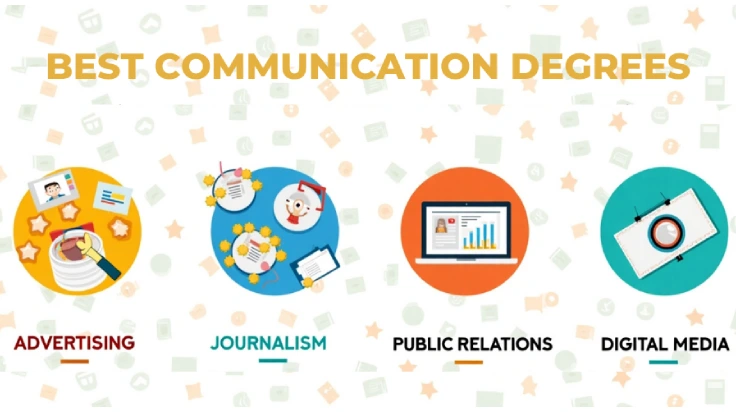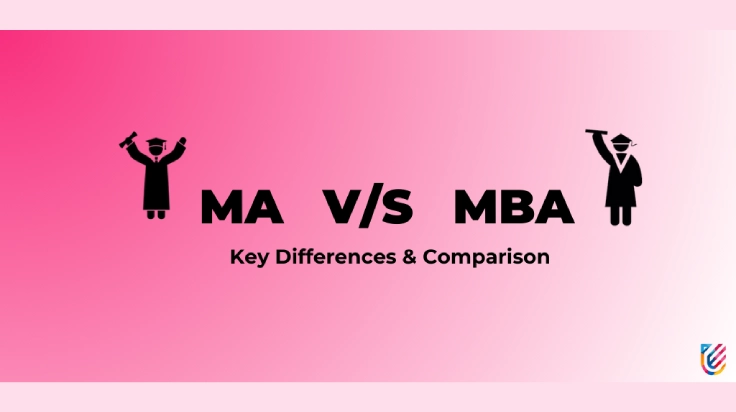10 Types of Communication Degree
- UPES Editorial Team
- Published 05/03/2025

Table of Contents:
Let us tell you one thing very frankly, if you wish to succeed in life, have great communication skills. Period. Words linger longer than most things. If you wish to achieve something, get some task done, rightful communication is the key. With the coming of social media and more, art of communication, be it written, verbal, or pictorial has become even more important.
Become future-ready with our Liberal Studies programs
Know MoreHaving a formal communication degree can help you with practical scenarios, teach you the nuances of communication, and prepare you for the world of communication and media. Let 2025 be the year, you choose a skill you’ll never regret. Conquer the Communication Field!
Read till the end to know the types of communication degree you can pursue, their scope, eligibility, job prospects, and more. By the end of this blog, you will be able to decide which communication degree suits you best and how to make best use of this degree.
Why is a Communication Degree important?
Imagine standing in front of a boardroom. You must deliver a presentation on a topic that’s very trendy and important. You have the right points. You are prepared statistically and content-wise. You open your mouth, and your biggest nightmare comes true! You fumble, stutter, and even stand at loss of words. Why? All because you lack communication skills!
And then you regret: If only you had pursued a communication degree back when you had the time and opportunity to, things today would have been very different. Just knowing isn’t enough. Having the ability and the skill to get the ideas rightfully across the room to a group of people eloquently, is MORE important.
A degree in communications opens doors to diverse career opportunities in fields such as marketing, writing, human resources, and politics. In the modern information-driven era, effective communication is not just a skill but a critical necessity across every industry. A communications degree equips you with the expertise to convey information with clarity and transparency, building trust, fostering collaboration, and driving solutions in professional settings.
The importance of a communications degree lies in its ability to empower individuals with the tools to navigate and thrive in dynamic work environments. From crafting impactful messages to facilitating productive interactions, graduates of a communications program are well-prepared to create positive workplace cultures and address challenges with innovative problem-solving approaches.
Discover why a communications degree is invaluable, the career paths it opens, specialized areas of study, and the essential skills you'll gain to excel in any field.
10 Types of Communication Degree Options:
Now that we know the importance of having a communication degree, we can investigate the top 10 communication degrees you can pursue for a bright, eloquent career in various sectors. After all, in every field we can use a person who can weave magic through his communication skills.
1. Advertising and Marketing
If you are good at branding and marketing products, be it education, fashion, merchandise, or any industry for that matter, you can pursue a degree in Advertising and Marketing. Having a degree in Advertising and Marketing Communication opens doors to career like advertising director, marketing manager and social media strategist.
2. Broadcasting
Having a degree in Broadcasting Communication equips you with the expertise to produce and distribute content for radio and television. For doing the job well, you must excel well in both written and verbal communication to get across the right message.
3. Corporate Communication
Working in corporate will require you to know how to use language in various tedious scenarios. You will have to communicate on many levels, both with your team and others. Having a corporate communication degree will help you communicate well, both written and verbal across clients, employees, employers, stakeholders, and more. This includes crafting employee newsletters, preparing press releases, and managing crises effectively to maintain the organization’s reputation.
4. Public Relations
Students who earn a degree in public relations learn how to interact with the public while maintaining a certain brand image. Public relations managers are employed by businesses and individuals to communicate with the media on their behalf. For instance, a company can depend on a public relations manager to post on social media or send out news releases. Students pursuing a degree in public relations usually enroll in journalism and communication-related courses, including research, media ethics, and communication law.
5. Film and Media Studies
For those passionate about multimedia and the art of storytelling, can always pursue a degree in film and media studies communication. This degree will allow you to communicate to a wider audience via the media of films, short stories, and documentaries broadcasted across televisions, digital platforms like Netflix, and more.
6. Health Communication
Remember the big, bold Covid posters? Remember the guidelines pasted on them? They are the words of Health Communicators!
There is an increasing demand for public health campaigns and healthcare messaging strategies. Having a degree in Health Communication makes you eligible for roles as Public Health campaigner in both government and private companies. With skills to educate the public on diseases, advancements in health and science, a degree health communication plays an important role in the field of health and science.
7. Political Communication
This degree focuses on the role of communication in politics, including campaign strategies, political advertising, and public opinion analysis. It’s an excellent choice for aspiring political consultants or analysts.
8. Global and Intercultural Communication
Students learn how cultural differences affect communication and how to navigate these differences in a globalized world. This specialization is particularly valuable for careers in international business, diplomacy, or global media.
9. Interpersonal and Organizational Communication
Focusing on communication within and between groups, this program teaches conflict resolution, team building, and leadership skills. It’s ideal for roles in human resources and organizational development.
10. Journalism and Mass Communication
This program focuses on the fundamentals of reporting, writing, and editing for various media platforms, including newspapers, television, and online media. Students gain skills in storytelling, investigative journalism, and media ethics, preparing them for dynamic roles in the news and media industry.
Also Read: Important of Communication Skills for Leadership
Enroll to a Trendy Communication Degree Today:
BA Journalism and Mass Communication (Digital) and MA Journalism and Mass Communication (MAJMC) are two of the most sought-after communication degree. Both the programs are designed to prepare aspiring storytellers for a world driven by digital innovation and media evolution. By the end of respective 4 and 2 years, students will master skills like media writing, communication, electronic, and digital production techniques, thus helping bridge the gap between theory and practise.
Another Communication programs, BA Digital and Mass Media (Broadcasting) and BA Digital and Mass Media (Broadcasting) programs at UPES are comprehensive course designed for students who aspire to build dynamic careers in the broadcasting and digital media industries. These programs provide a deep dive into both traditional and contemporary broadcasting mediums, such as radio, television, and emerging digital platforms. With a curriculum tailored to meet the demands of the rapidly evolving media landscape, students gain expertise in audio-visual production, video editing, broadcasting technologies, and storytelling techniques.
Pursuing a bachelor’s in communication (BA communication) or master’s in communication (MA communication) will enhance the below skills. The below listed skills are extremely important in today’s world of fast but long-lasting interaction, especially with the coming of social media, AI, and progressing technology.
| Interpersonal Skills | Strategic Thinking | Media Literacy | Research Proficiency |
Why Choose This Program?
With a wide focus on practical application of communication theories studied in class, pursuing a communication degree will help you conquer the digital landscape. Let us read more to know the benefits of UPES’ Communication programs.
- Comprehensive Curriculum: Master the art of journalism across digital platforms, from social media to multimedia storytelling.
- Hands-on Experience: Gain real-world skills with cutting-edge tools and techniques used in today’s media landscape.
- Industry Focus: Stay ahead with a program shaped by trends in digital journalism and mass communication.
- Career Readiness: Whether it’s digital marketing, online journalism, or content creation, this degree sets you up for success in high-demand roles.
Careers After Graduation:
- Digital Journalist
- Social Media Manager
- Content Creator
- Multimedia Storyteller
- Digital Marketing Specialist
- News Anchor
- TV/Radio Producer
- Content Strategist
- Media Planner
- Video Editor
Enroll Today to discover how UPES empowers you to craft compelling narratives for the digital age!
The Future of Communication Education
The digital transformation has redefined communication. Topics related to communication, such as artificial intelligence in media, virtual reality, and data analytics, are now integral to communication studies. This shift underscores the importance of staying updated with advanced communications courses and real-world applications.

Our counsellors are just a click away.
Conclusion
A degree in communications is not just an academic pursuit but a gateway to versatile careers and personal growth. Whether you’re aiming for a Bachelor of Communications, masters or exploring a Ph.d in communications program to specialize further, the opportunities are vast and rewarding. Dive into the world of communication with UPES and unlock a future filled with creativity, influence, and innovation.
UPES Editorial Team
Written by the UPES Editorial Team
UPES Admission Enquiry
Subscribe to UPES Blogs
Join our community for exclusive stories, insights, and updates
By clicking the "Subscribe" button, I agree and accept the privacy policy of UPES.






























